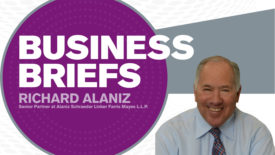- MEDIA GROUP
- NEWS
- MAGAZINE
- MEDIA
- REFRIGERATION
- BUSINESS 101
- RESIDENTIAL
- COMMERCIAL
- DIRECTORY
- MORE
- INFOCENTER
Home » Keywords: » employment discrimination
Items Tagged with 'employment discrimination'
ARTICLES
How to avoid unneeded lawsuits and conflicts
Read More
When (And When Not) To Contest Unemployment Benefit Claims
Protecting yourself from lawsuits, and saving money
August 14, 2019
With New California Law, Equal Pay Becomes More Complicated
Employers should take some time to understand the different laws that could impact them
Read More
Employment Background Checks Drawing Government Scrutiny
Contractors May Face Legal Hurdles When Using Background Checks During Hiring Process
Read More
Copyright ©2025. All Rights Reserved BNP Media.
Design, CMS, Hosting & Web Development :: ePublishing







